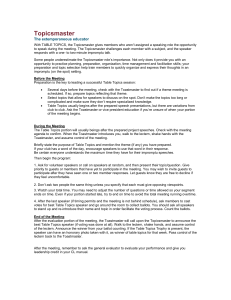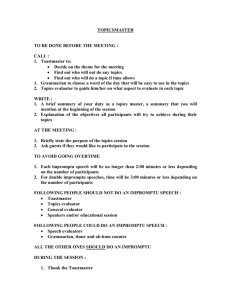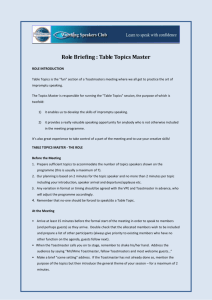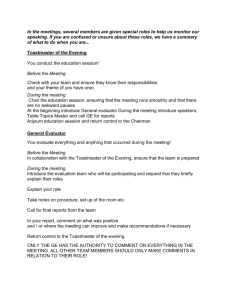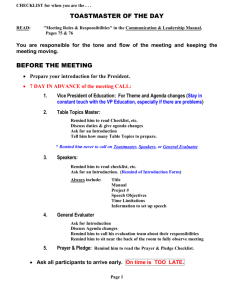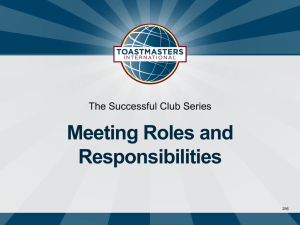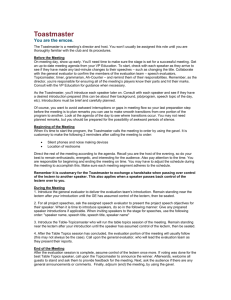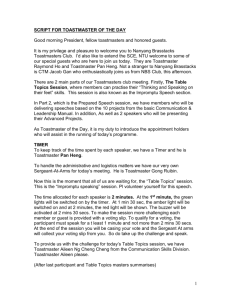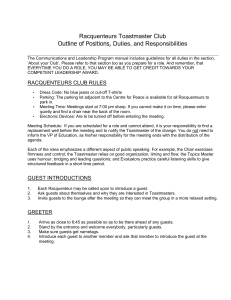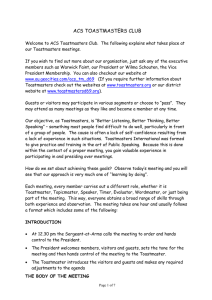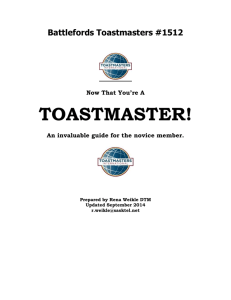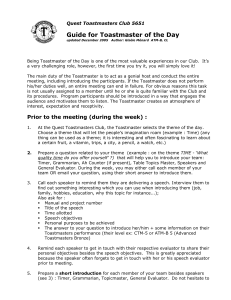Table Topics Master Role Guide - Toastmasters
advertisement
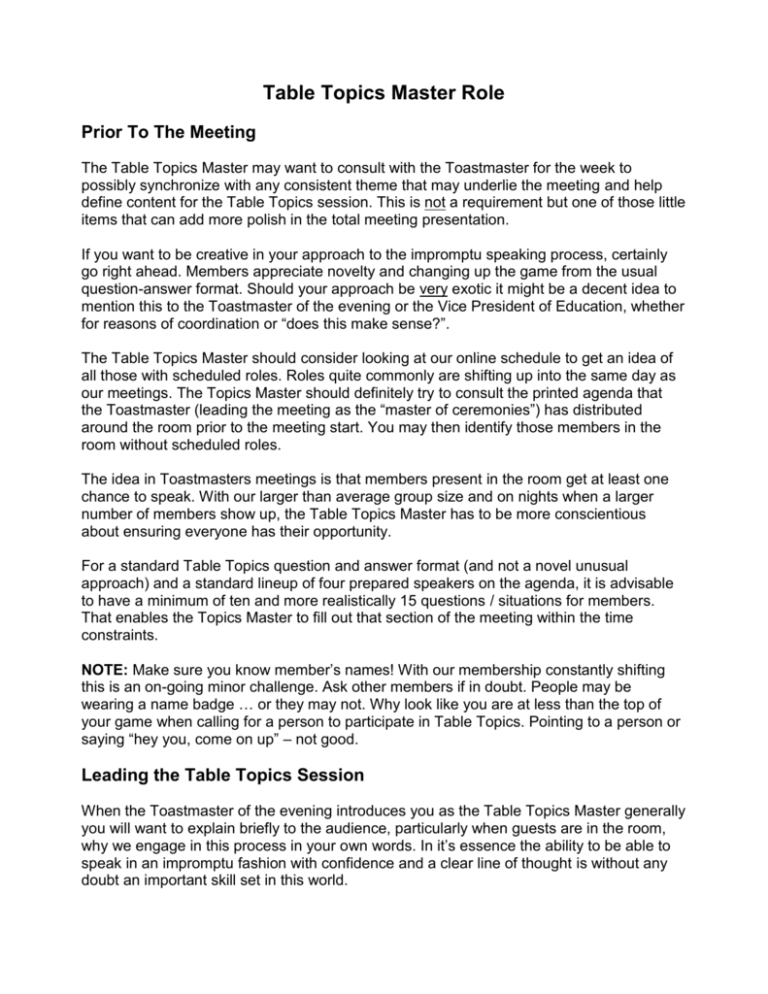
Table Topics Master Role Prior To The Meeting The Table Topics Master may want to consult with the Toastmaster for the week to possibly synchronize with any consistent theme that may underlie the meeting and help define content for the Table Topics session. This is not a requirement but one of those little items that can add more polish in the total meeting presentation. If you want to be creative in your approach to the impromptu speaking process, certainly go right ahead. Members appreciate novelty and changing up the game from the usual question-answer format. Should your approach be very exotic it might be a decent idea to mention this to the Toastmaster of the evening or the Vice President of Education, whether for reasons of coordination or “does this make sense?”. The Table Topics Master should consider looking at our online schedule to get an idea of all those with scheduled roles. Roles quite commonly are shifting up into the same day as our meetings. The Topics Master should definitely try to consult the printed agenda that the Toastmaster (leading the meeting as the “master of ceremonies”) has distributed around the room prior to the meeting start. You may then identify those members in the room without scheduled roles. The idea in Toastmasters meetings is that members present in the room get at least one chance to speak. With our larger than average group size and on nights when a larger number of members show up, the Table Topics Master has to be more conscientious about ensuring everyone has their opportunity. For a standard Table Topics question and answer format (and not a novel unusual approach) and a standard lineup of four prepared speakers on the agenda, it is advisable to have a minimum of ten and more realistically 15 questions / situations for members. That enables the Topics Master to fill out that section of the meeting within the time constraints. NOTE: Make sure you know member’s names! With our membership constantly shifting this is an on-going minor challenge. Ask other members if in doubt. People may be wearing a name badge … or they may not. Why look like you are at less than the top of your game when calling for a person to participate in Table Topics. Pointing to a person or saying “hey you, come on up” – not good. Leading the Table Topics Session When the Toastmaster of the evening introduces you as the Table Topics Master generally you will want to explain briefly to the audience, particularly when guests are in the room, why we engage in this process in your own words. In it’s essence the ability to be able to speak in an impromptu fashion with confidence and a clear line of thought is without any doubt an important skill set in this world. If you have a thematic thread running through your questions you as Table Topics Master may want to mention that too. If the structure of Table Topics is different or more challenging than the norm (e.g. a debate, game show-type structure, a sequential story that each speaker continues to build upon) you will want to define how the session will progress. At some point during this whole introductory process and before bringing members to the front of the room you would want to ask the Timer to define the timing rules for this section of the meeting. People without scheduled roles would be your initial primary targets for questions or participation in Table Topics. To the extent all of those members have been included, THEN feel free to include members with scheduled roles or guests in the room as time permits. Guests should be given the option and not arbitrarily tossed into the Table Topics soup without their consent. To be called up unexpectedly in front of a group of strangers can be quite stressful for the average person. The Topics Master should remain aware of when he / she is approaching the time boundaries of the session or take subtle hints from the Toastmaster. When we have less than a full compliment of prepared speakers the Topics Master has more flexibility on how many to include in the session. Once the Topics Master is finished calling up members (and any guests) he / she will want to publicly ask the Timer if all the impromptu speakers qualified within our timing rules. Then the Table Topics Master would call for a vote for who members thought was the “Best Table Topics Speaker”. The Sergeant-At-Arms will circulate around the room collecting these votes. It can be a good idea to briefly remind members in a quick summary of who spoke about what topics during the voting process. After this as the Table Topics Master you may either call for a meeting break (with our typical current meeting sequence) or return control to the Toastmaster of the evening.
